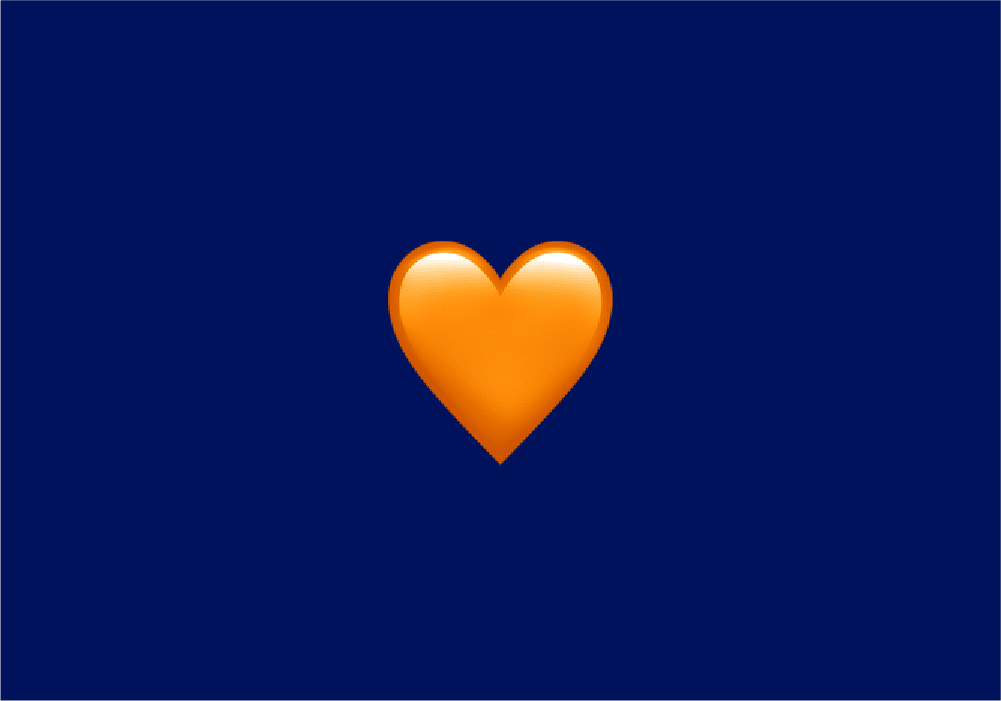Like every heart emoji, the orange heart is also associated with specific emotions and uses. Be careful, or you might use it in the wrong context!
Orange heart: The meaning of the emoji
In WhatsApp messages, you can express all kinds of feelings using emojis. In addition to the classic red heart, you will also find an orange one. Here’s what it means.
- The orange heart can be seen as a precursor to the red heart. The orange heart is therefore used to express initial infatuation or first romantic feelings.
- Furthermore, the color orange stands for positive thinking, positive feelings, and energy. You could therefore use it to tell your chat partner: we could become a couple.
- An orange heart also expresses care and close friendship. You could therefore also use it if you want to confirm your deep friendship to someone.
- You can also use this orange heart emoji if you want to express support for activities or things associated with this color.
These heart colors are also available
Of course, WhatsApp emojis are not limited to orange hearts. There are a number of other colors available.
- The red heart does not really need much explanation. It stands for romantic love. The red heart is a declaration of love and is therefore only sent to very special people.
- The yellow heart stands for friendship. You express friendly feelings towards the other person and signal a deep connection.
- The color green actually stands for hope. This is also true for the green heart emoji. It can therefore stand for positive hope for something. However, it can also have a negative meaning, as jealousy could also be involved.
- A light blue heart is ideal if you want to flirt casually. With this emoji, you signal that you have no serious intentions. You also express your own happiness.
When not to send an organic heart on WhatsApp or other messengers
The organic heart emoji is usually used in WhatsApp and other messengers to represent growing love, deep affection, or a particularly close bond, and is traditionally used primarily in new romantic relationships or among very good friends and close family members. It can therefore be easily misunderstood if sent in the wrong context. You should not send it:
- In a professional context: In work chats, to colleagues, superiors, or customers, as it appears inappropriate and too private.
- To casual acquaintances or new contacts: This can lead to misunderstandings and be perceived as too intrusive or flirtatious.
- In friendships where there is no very close emotional basis: Some people might misinterpret the gesture, e.g., as an attempt to take the relationship to a romantic level.
- To people with whom you are currently in conflict or have a distant relationship: This could be perceived as sarcastic or inappropriate.

